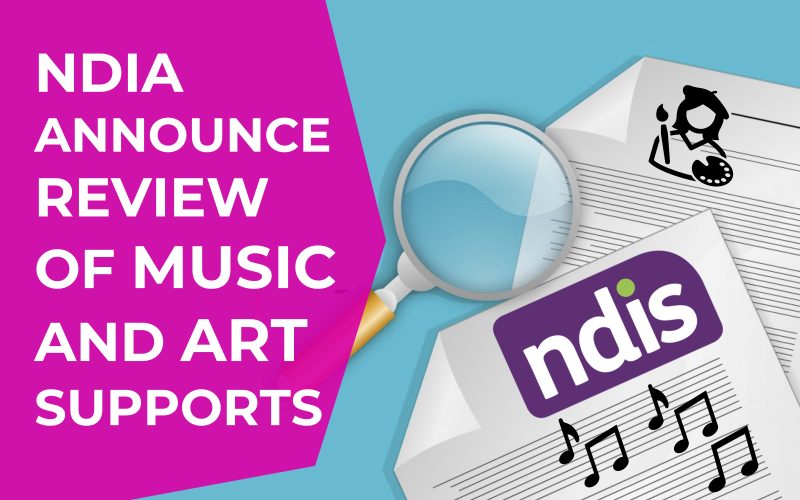Today, 13 Dec 2024, the NDIA has announced they are commissioning a review of appropriate NDIS pricing for music and art supports, based on available evidence. The NDIA will release new operational guidance around therapy and allied health supports in 2025.
Todays announcement is despite the NDIA originally stating that “new Operational Guideline relating to therapy supports will be released on 2 December 2024”.
Today’s announcement will bring some comfort, in the short term, to NDIS Participants who have been accessing these supports from qualified practitioners to achieve their goals and outcomes.
The impact of continued poor implementation of the new Section 10 rules (NDIS Supports Lists) with policy implementation via FAQs and quietly updated sections of the website is resulting in undue workload, inefficiency, stress and cost on DIA’s members and Participants, which is completely avoidable.
DIA acknowledges the hard work many NDIA staff are undertaking at the moment in difficult operating conditions and notes that Plan Managers and the Participants they support were given just 30 days from 3rd October 2024 to be fully compliant with the new rules, despite the lack of under pinning policy and continued contradiction in advice and publications from the NDIA including the Price Guide (PAPL), Short Term Accommodation Guidance, Improvise Daily Living Guidance, Therapy and Allied Health Guidance, Meal Preparation and Delivery, Debt Liability and Recovery, Payment integrity, and many more which has put Plan Managers and Support Coordinators in an impossible service situation, which is resulting in poor participant experience and our members being blamed for inadequate NDIA policy and support.
Music and Art Therapy Review
Dr Stephen Duckett AM will undertake the review ahead of the operation of the Expert Advisory Committee by July 2025. Dr Duckett is an experienced health economist who has occupied several leadership roles in health services, leading reform and evidence-based innovations in health care.
The review will assess:
- The review of evidence of effectiveness of art and music therapy for people with disability
- Qualifications and registration of music and art practitioners
- Pricing of art and music support
The Agency has deferred the release of the operational guidance clarifying decision making on therapy supports, which is required under recent Government changes to the NDIS Act, and any associated price guide changes.
The review will also seek from art and music practice associations any additional peer-reviewed evidence that the supports are effective and beneficial as a disability-related support for most participants and are current good practice.
The review’s role and responsibility is to provide expert opinion on appropriate pricing for art and music therapy, on the basis of existing evidence as to whether the music and art therapy will be, or is likely to be, effective and beneficial for participants, having regard to current good practice. For evidence-based therapy to be funded through the Scheme, there needs to be evidence that the therapy helps participants improve or maintain their functional capacity in areas such as language and communication, personal care, mobility and movement, interpersonal interactions, functioning (including psychosocial functioning) and community living.
The Terms of Reference for the Review are available on the NDIS website and indicate that that the review will conclude no later than 14 March 2025. There is no information on if submissions will be opened or if it will be a completely closed review.
What Does This Mean For Music and Art Therapy Services and Claims Right Now
Any proposed changes will not come into effect until the review is completed and the relevant findings are considered.
The NDIA has stated that “Evidence based therapy currently allows providers to charge up to $193.99 per hour (with the exception of psychology)” and “while art and music therapy remain permissible, they do not meet the evidentiary standards required to be classified as a ‘therapy’ under the definition of NDIS supports”.
So, Music and Art Therapy can continue to be claimed in the NDIS until this review is completed, its findings considered, and an announcement on revised policy is made.
DIA is a members-based organisation. We are only able to do the work that we do because of the ongoing support of our members. Thank you to all DIA members that continue to support the work we do. If you’re a provider delivering Support Coordination or Plan Management are not yet a member, you should consider joining. Click here to join from our homepage.

